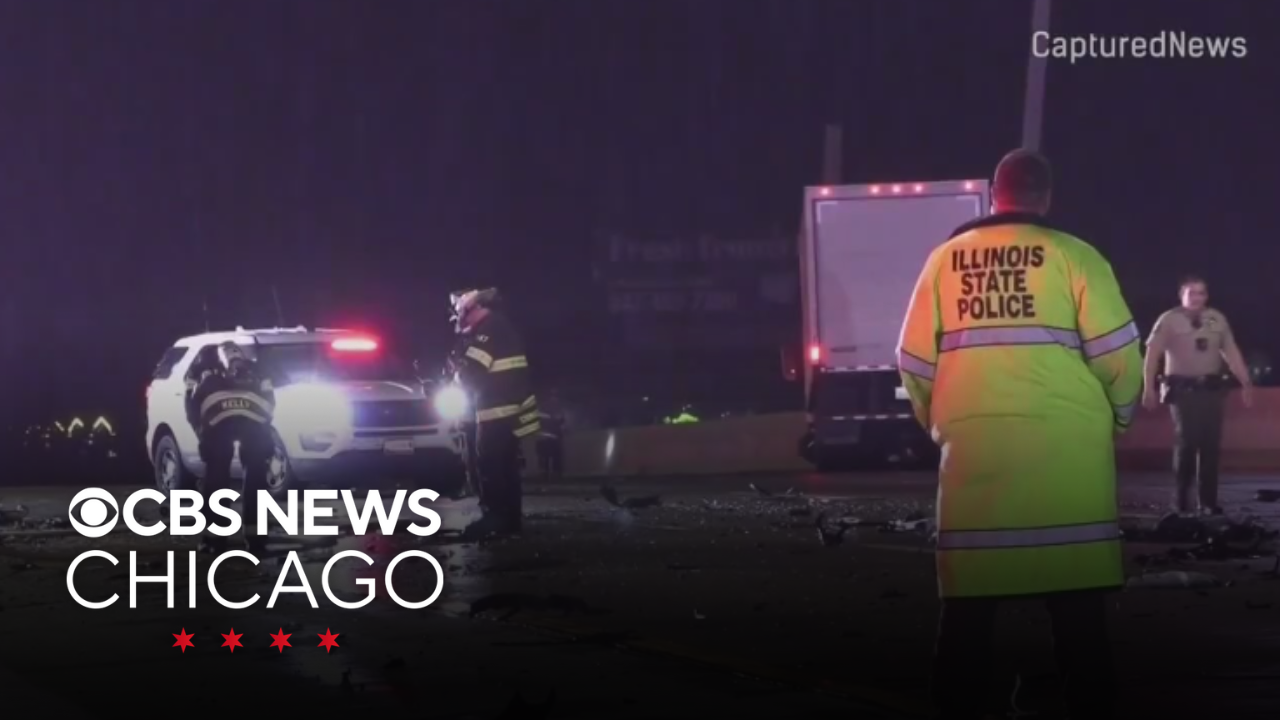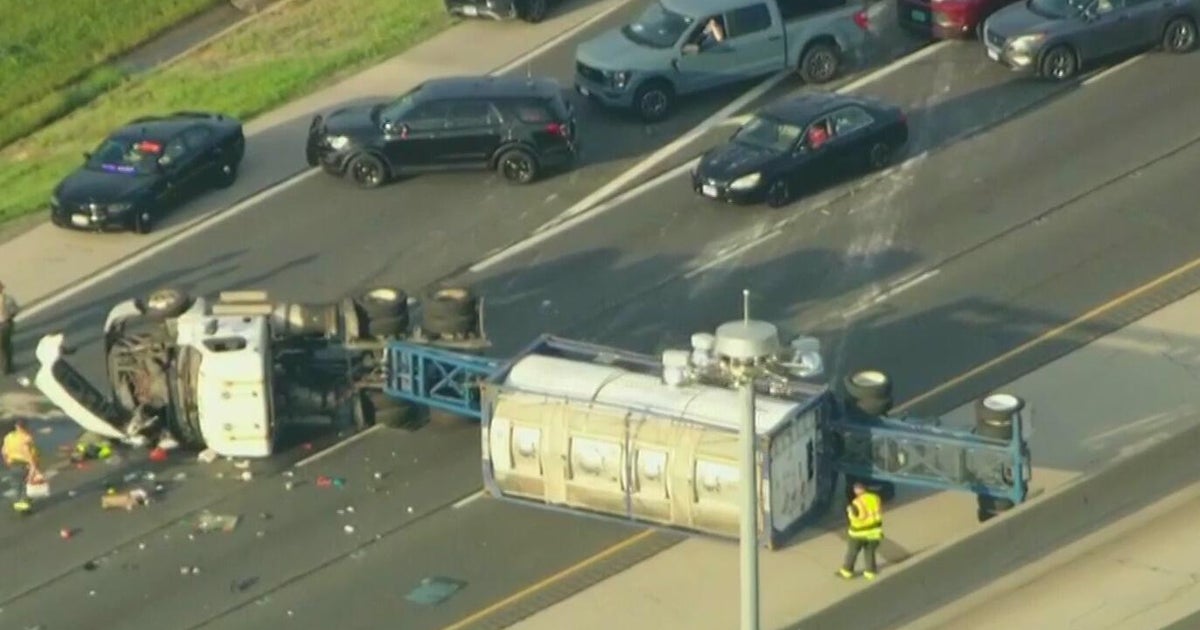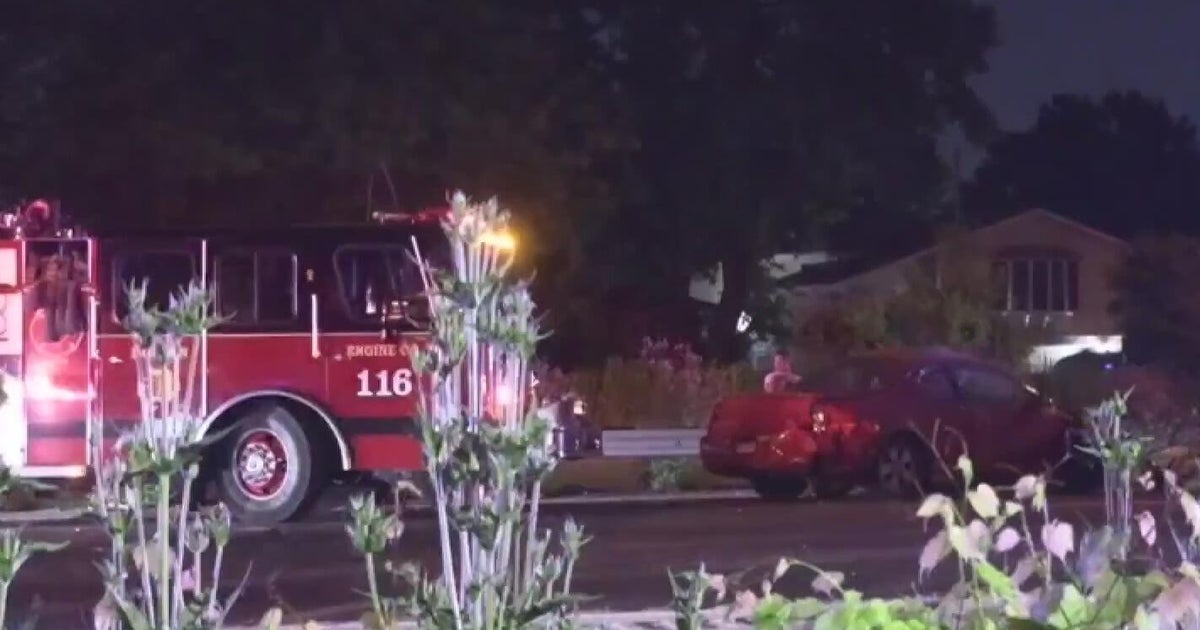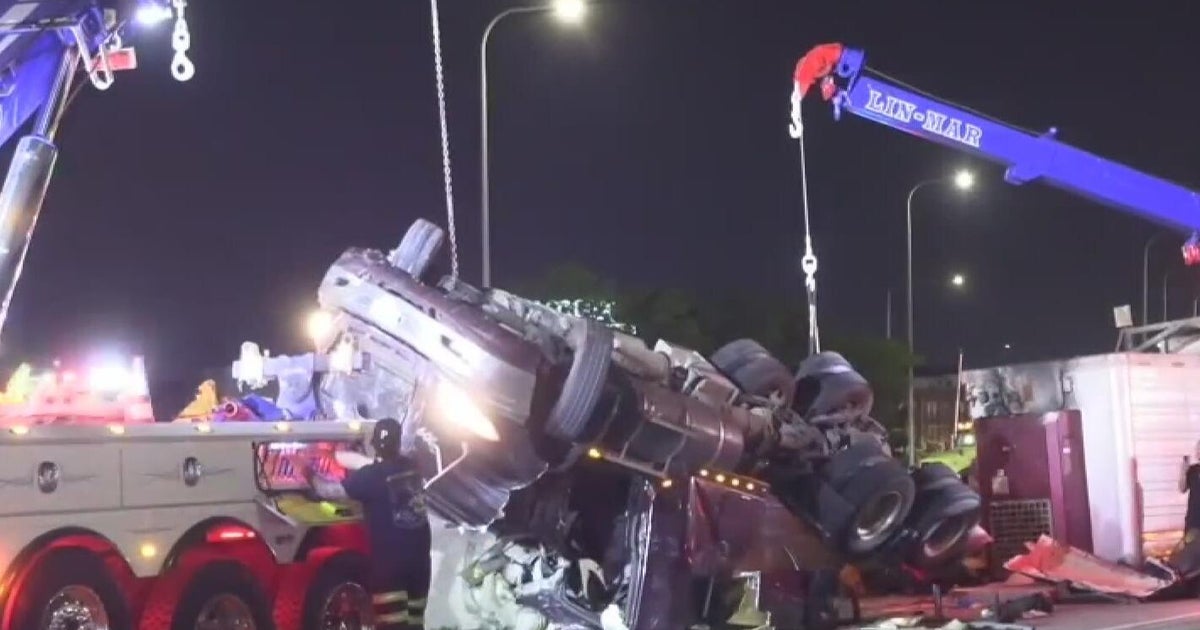Wrong-way driver dies in crash on I-294 in north Chicago suburb
A driver was killed and two other people were injured after a wrong-way crash on the Tri-State Tollway in Glenview, Illinois, on Wednesday morning.
According to Illinois State Police, a car was driving southbound in the northbound lanes of I-294 and hit a box truck near Golf Road at 1:54 a.m.
The wrong-way driver was pronounced dead on the scene, ISP said.
The driver and passenger of the truck were taken to a local hospital. The extent of their injuries was not immediately released.
All northbound lanes were shut down just north of Golf Road and reopened before 7 a.m.
Illinois State Police also have not said why the driver who caused the crash was going the wrong way.
Meanwhile, transportation experts said crashes like these are hard to prevent — and technology is being developed to change that.
A report published by the AAA Foundation for Traffic Safety revealed wrong-way crashes result in about 500 deaths every year across the country — with hundreds more severely injured.
A revealed about 58% of wrong-way drivers on Illinois roads were under the influence, with crashes often reported late at night or early in the morning.
"The wrong-way crash this morning in Glenview is devastating," said Aashish Narang.
Narang is the program manager for — the Center for Assured & Resilient Navigation in Advanced Transportation Systems.
"While these crashes are rare, they tend to be deadly due to head on collisions," said Narang.
The CARNATIONS team is working on technology that could help address wrong way crashes, and prevent them moving forward.
"Our team is working on several key technologies," Narang said.
One of those projects is a system that could use vehicle data and sensors to alert drivers and surrounding drivers about risks on the road, in real time. It would focus on real-time detection of abnormal driving, as seen in wrong-way crashes.
"It detects in real time if a vehicle is behaving abnormally or entering on an exit," Narang said.
CARNATIONS explained this and other elements of its work in a written statement:
Our work is guided by three pillars — Toughen, Augment, and Protect — each supported by projects aimed at reducing risks that lead to wrong-way driving.
Toughen:
Our project, GNSS Anti-Jam & Anti-Spoof Antenna Technology, led by Sherman Lo at Stanford and Mark Psiaki at Virginia Tech, develops advanced antenna systems like Controlled Reception Pattern Antennas (CRPAs) and Dual Polarization Antennas (DPAs). These antennas detect and block GPS jamming and spoofing attempts, protecting the accuracy of vehicle navigation. By securing GPS signals, this project helps ensure vehicles remain on their routes, reducing the risk of wrong-way driving.
Augment:
Under the Multi-Sensor Integration for Spoofing and Jamming Resilience project, led by Boris Pervan and Samer Khanafseh at Illinois Tech, we integrate radar, cameras, LiDAR, and inertial measurement units (IMUs) to provide vehicles with a reliable, multi-layered understanding of their environment. This layered sensing approach detects inconsistencies in GPS data and maintains precise positioning even in challenging environments, like tunnels or urban corridors. This helps prevent vehicles from mistakenly traveling the wrong way when GPS signals are compromised.
Protect:
The Generalized Integrity Monitoring Framework for Connected and Automated Vehicles project, led by Matthew Barth at UC Riverside, focuses on real-time detection of abnormal driving behaviors such as wrong-way driving. This system uses connected vehicle data and sensor fusion to alert drivers and surrounding vehicles about imminent risks, providing critical seconds to avoid crashes. Its development includes digital twin simulations and on-road testing, with growing support from national safety standards groups.
Together, these projects create a safety net—securing navigation, enhancing situational awareness, and delivering real-time warnings—to help prevent wrong-way crashes and protect lives.
also has information on deterring dangerous driving.
The Illinois State Police were still investigating the wrong-way crash late Wednesday.





